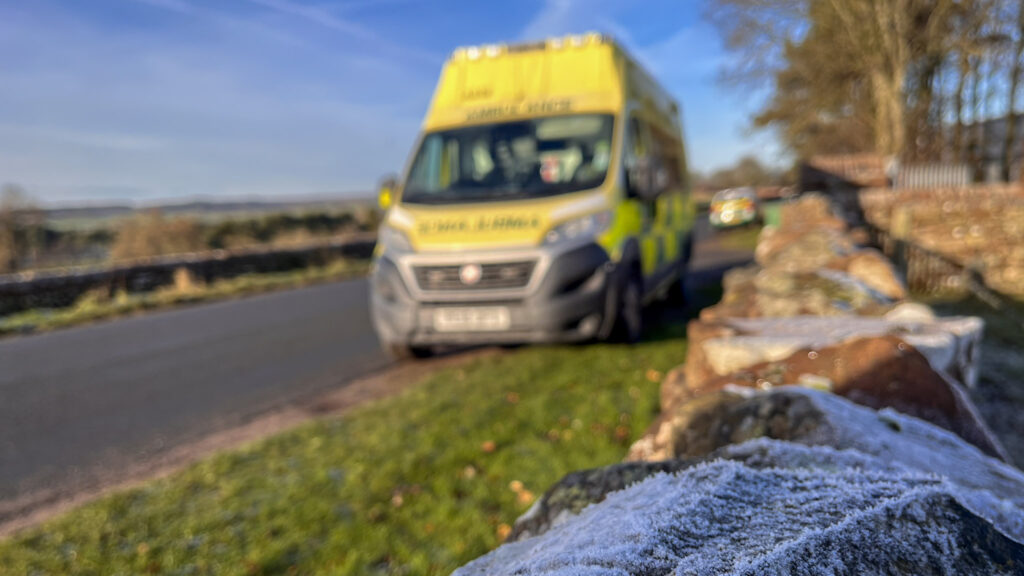
As the NHS moves into its traditionally busiest time of the year, we want to reassure you that we are prepared to support those who need emergency care this winter.
This season typically sees an increase in flu and respiratory illnesses, resulting in a rise in hospital admissions. Additionally, cold and freezing weather can lead to a higher number of injuries associated with slips and falls. As a result, the NHS experiences a surge in demand, which can lead to delays for patients waiting for an ambulance.
Heading into the winter period, NWAS is in a strong position. The trust has achieved its best performance and response times in seven years and, recently, appeared at the top of the league tables produced by the Department for Health and Social Care (DHSC), comparing all ambulance trusts in England.
Dan Ainsworth, NWAS Director of Operations, says, “As always, our people are working hard around the clock to help patients in their time of need. Over the last couple of years, we’ve made significant improvements to the way we operate for the benefit of patients.
“We’ve invested in more ambulances and clinicians, both on the road and in control rooms, increasing the number of people we help over the phone. However, as demand increases over the next few months, we still need the public to play their part. Please only call 999 for emergencies – when you think someone’s life is at risk. Urgent medical help can be found at NHS 111 online, available through the NHS app.
“As temperatures drop, take extra care when out and about. Icy paths and wet conditions can lead to slips and falls. Wrap up warm, check on vulnerable friends and family, and make sure you’re prepared for the winter weather.”
You should call 999 if you or someone else experiences:
- signs of a heart attack, such as pain like a heavy weight in the centre of your chest
- signs of stroke, such as your face dropping on one side
- difficulty breathing
- heavy bleeding that won’t stop
- Signs of serious illness or injury, and you think their life is at risk.
111.nhs.uk can help you with:
- where to get help for your symptoms if you’re not sure what to do
- how to find general health information and self-care advice
- where to get an emergency supply of your prescribed medicine how to get a repeat prescription
- get urgent specialist support for dental or mental health problems.
As part of ongoing improvements at NWAS, and in response to patient feedback, 999 call-handlers now routinely let people know how long an ambulance is likely to take and advise that they can make their own way to the hospital if appropriate. Given this reassurance, many patients choose to do so, which helps to free up resources to attend to those who need clinical care during the journey to the hospital.
NWAS reports that just 11% of the 4,500 emergency calls it receives every day are for immediately life-threatening conditions, so it has had to adapt to handle demand from the public. Often, callers are referred to another part of the NHS or given self-care advice to save ambulances for the most serious cases.
Dan adds, “We understand phoning 999 is an incredibly stressful and worrying time for people. Please be reassured, we are there to help. When our call handlers ask questions, it’s not delaying help; we’re just finding out all we need to ensure patients get the right care and to get ambulances to those who need us more quickly.”
“Calling 999 is not a shortcut to receiving hospital care, and not everyone will receive an ambulance. Some patients may receive a call back from a clinician to reassess their condition or provide help and advice over the phone.”